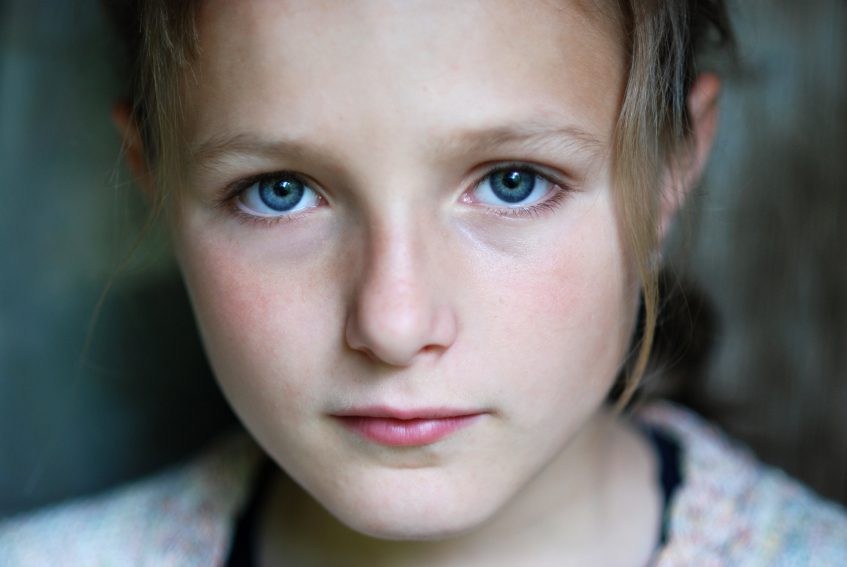When You Have An Explosive Child

Posted in: Grade School, Pre-School, Teenagers, You & Your Family
Topics: Behavioral Issues, Real Lives Real Stories
“When You Have an Explosive Child” is part of a series entitled Real Lives, Real Stories: Personal Experiences With Mental Illness.
Note: The following person’s account of his/her personal experience has been published with his/her consent to support the mission of The Clay Center for Young Healthy Minds, and let others in similar situations not feel so alone.
No One Knows What To Say
Laura*
*Last name has been omitted to maintain privacy
No one knows what to say. After all, what do you say when someone tells you that her 21-year-old son is psychotic and in a psychiatric hospital? People feel bad, but they don’t know how to help. If I could articulate what I need, I know my good friends would be there in a heartbeat. But, I can’t seem to find the words. I don’t know what I need; all I know is that my heart is heavy, and my eyes full of tears. I am so sad.
Did I miss something when my son was young? Could we have done something differently to prevent him from ending up this way as an adult?
He was a sweet baby—and a smart child. He spoke early and had well-developed speech for his age. Although he walked and “potty trained” later than most, those milestones didn’t concern us necessarily. However, we did begin to worry when his excessive temper tantrums continued, and he was not able to function in structured group activities or engage in cooperative play. So began the battery of tests over the course of his childhood, beginning at age five.
Our son’s specific diagnosis has changed over the years; he’s been diagnosed at one point or another as having oppositional defiant disorder, mood disorder, non-verbal learning disability, severe anxiety, Asperger syndrome, and bipolar disorder. No matter what you want to call it, he has low frustration tolerance, underdeveloped problem abilities, poor executive functioning, slow processing speed, mood fluctuations, and rigid thinking. These skill deficits rendered themselves as meltdowns when he couldn’t get his needs across, and violence when he felt threatened. Yet, he is also bright, sensitive, caring, and sweet when his environment supports his needs. It’s just that his endearing personality is overshadowed when he has unmet needs that he is unable to express effectively.
No one knows how to help someone who is violent, even when that someone is a young child. Two private kindergartens expelled him. Public schools refused him after first grade. Some special needs schools, both public and private, tried briefly, but gave up when he inevitably lost control. No one knew how to support and help him, let alone educate him. Imagine the pain he went through as a young child! He was repeatedly rejected at school, excessively restrained, and punished and emotionally beaten down by the very people who were supposed to care for, help, and educate him. These were the experts after all; people I trusted to help make him better. Just about everyone’s solution was medication to keep him from becoming so agitated. Yet, even on high-dose medications, the violence continued. Instead, the only things that dissipated were his emotions, feelings, and caring thoughts. He became a zombie.
Why did no one stop to think about the skills he appeared to lack? For example, how might he learn to express his frustrations without resorting to rage? Most of those who worked with him were stuck on making contracts, and giving/taking away points or rewards depending on his behavior. However, he saw few positive rewards; just about anything he attempted led to frustration, which in turn gave way to oppositional behavior. This resulted in a vicious cycle of negative consequences and worsening behavior.
None of his early schools helped him develop coping skills. Instead, he was contained, maintained, and restrained until he was isolated in a time-out room for the better part of every day.
Thankfully, I stumbled across a parenting approach called “Collaborative Problem Solving” while reading the book The Explosive Child. While this approach is recognized and proven to be effective, it’s still not the standard treatment for challenging kids in most schools or psychiatric hospitals. For my son, though, it has made all the difference.
In Collaborative Problem Solving, the goal is to reframe the behavioral challenges into skill deficits instead of psychiatric diagnoses. The particular behavioral or mental condition(s) the child has are not important; what is important are the skills he is missing to effectively deal with stress. Once those have been identified, the approach can be implemented.
Collaborative Problem Solving starts by first increasing skills in an area of non-conflict to help facilitate trust. In this way, the child is able to work on building his skills without fear of retribution. As he develops more effective coping mechanisms and problem-solving skills, his frustrations decrease.
We implemented an earlier version of this approach when my son was 8 years old, and drastically improved our life at home. However, when we advocated for the technique to be implemented at his schools, we faced resistance from every special needs school he attended until age 14. Finally, we came across a residential school that was running a pilot program based on Collaborative Problem Solving, and were thankfully able to enroll our son. After about a year of hard work, he was finally able to access education—and, he never needed a restraint again (which, for a child who was sometimes restrained several times a day and expelled from six special needs schools, was nothing short of a miracle).
Our son continued to learn, grow, and thrive in the program for three years, at which point he set a goal for himself: to go to high school in his hometown. He pushed toward this goal in a big way, learning to advocate for his own needs, developing proactive coping skills, and implementing an education plan to meet all requirements for graduation with invested teachers who wanted nothing more than to see him succeed. And, thanks to his efforts, he did—he integrated into regular education classes and ultimately graduated from his hometown public high school at age 18.
Upon graduation, he worked at a dog kennel for more than a year. During his time at the kennel, he encountered an abused dog that was deemed “red zone aggressive.” Our son, however, fell in love with him, spending hours and hours training him to become adoptable. Since saying goodbye was out of the question, the dog eventually became a part of our family. To this day, he is the most effective therapist our son has had—not to mention his best friend.
Our son is now a 22-year-old man. Unfortunately, his mental illness has recently progressed, and we can now add to his long list of diagnoses schizoaffective disorder. Needless to say, this is a scary new chapter in our lives. His mental illness is re-confirmed, it’s serious, and it requires that he go on medication to re-balance his mind. What’s a parent to do? Well, we’ve learned to readjust our expectations, and to find comfort in concentrating on what can be accomplished in the here and now. As much as possible, we try not to succumb to the overwhelming vastness of severe mental illness.
Little by little, it seems that our son is emerging from his entangled mind. His dog provides him unconditional support, and understands him in a way that no human can. And, our son is continuing to exercise the techniques he’s learned, and advocate for his needs.
It’s hard to say right now what the future holds. All we can do is push forward, and hope that he gets to experience a functional transition to adulthood.
Laura spent the first 20 years of her career working at Boston Children’s Hospital (Children’s) as a nurse in the neonatal intensive care unit, before she transitioned to serve as a healthcare leader in pediatric patient safety across the organization. In addition to her professional career, she has tirelessly advocated on behalf of her youngest son to create environments with supportive strategies at multiple schools across the state of Massachusetts. She has also led initiatives to reduce restraints at a residential therapeutic school, as well as at Children’s. Laura continues to volunteer her time in the areas of mental health, homeless children, and pediatric hospice care. She is married and a mother to two wonderful young adult sons.
Think:Kids at Massachusetts General Hospital aims to dramatically improve society’s understanding and treatment of challenging kids. Think:Kids achieves this goal by disseminating and implementing an innovative, proven approach known as Collaborative Problem Solving (CPS). The CPS model conceptualizes challenging behavior as the result of difficulty with crucial thinking skills; thus, unlike traditional models of discipline, the model eschews power, control, and motivational procedures, and focuses instead on identifying and teaching challenging kids the skills they lack. To learn more, visit the Think:Kids website.


 Share
Share Tweet
Tweet





